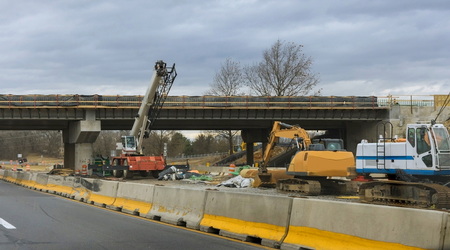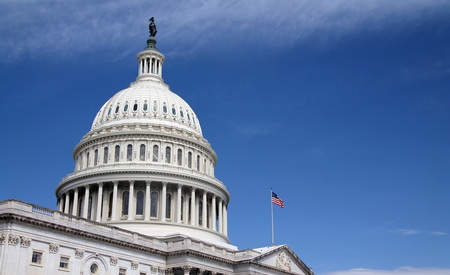
As rising inflation diminishes the spending power of the trillion-dollar bipartisan infrastructure law enacted seven months ago, the Biden administration continues to work on a potential reconciliation deal with congressional Democrats that could combat price pressures and revive parts of the president’s agenda. (BGov, June 23 and Politico, June 17)
Rising Construction Costs & Labor Shortages
- The costs of gas, food and other consumer staples surged to a four-decade high last month, registering an 8.6% increase from 12 months earlier. (US Bureau of Labor Statistics, June 14)
- Rising inflation is also increasing construction costs, which dilutes the buying power of states to implement federal aid on large infrastructure projects. States are receiving project bids up to 30% above their original expectations from contractors citing supply problems, spiking material costs, and labor shortages. (BGov, June 23 and Politico, June 17)
- An analysis by the Associated Builders and Contractors of recent labor data shows construction prices jumped 21% from a year ago, while nonresidential construction prices registered a 21.9% increase. Iron and steel prices were up 103% from 2020, while concrete increased 17% from two years ago. (Associated Builders and Contractors and Bureau of Labor Statistics, June 14)
- The Biden administration is seeking to support industries that may experience increased demand from new infrastructure investment—and assist workers acutely affected by the pandemic. The White House recently announced a “Talent Pipeline Challenge” initiative that aims to connect employers to organizations that offer job training through unions, industry associations, and community colleges for construction and jobs. (White House fact sheet and Bloomberg Law, June 17)
- White House infrastructure czar Mitch Landrieu told Bloomberg this week, “As long as there is a financial crunch on supply stuff and on inflation stuff, it’s going to affect everything that we’re doing in the $1.2 trillion at some point in time. Over the long haul, we think that will ease itself.” (BGov, June 23)
- Similarly, Transportation Secretary Pete Buttigieg said, “The tightness we’re experiencing today is not what you would see across the five-year life of this funding, let alone the longer life of the construction projects themselves.” (Politico, June 17)
Legislative Goal

- White House National Economic Council Director Brian Deese addressed administration efforts to combat inflation on June 19 with CBS News’ Face the Nation. He said, “The single most impactful thing that we could do right now is to work with Congress to pass legislation that would lower the costs of things that families are facing right now” such as prescription drugs and utility costs. (CBS transcript of Deese interview, June 19)
- The legislation Deese referenced is a scaled-back reconciliation package that may include provisions on climate, deficit reduction, and prescription drug costs—and reportedly is the focus of talks involving Senate Majority Leader Chuck Schumer (D-NY) and Sen. Joe Manchin (D-WV). (Roundtable Weekly, June 17)
- The big four Congressional leaders (Schumer, McConnell, Pelosi and McConnell) met on Tuesday and appear increasingly close to reaching agreement on a separate $50 billion bill to finance increased R&D spending, semiconductor production, and measures to address economic competitiveness with China. (Reuters, June 21)
- Inflation also dominated the concerns of policymakers this week during testimony by Fed Chair Jerome Powell before the Senate Banking Committee and House Financial Services Committee. (C-Span, June 22 and June 23)
Powell stated, “Inflation has obviously surprised to the upside over the past year, and further surprises could be in store. We therefore will need to be nimble in responding to incoming data and the evolving outlook. And we will strive to avoid adding uncertainty in what is already an extraordinarily challenging and uncertain time.” (Federal Reserve written testimony)
# # #

